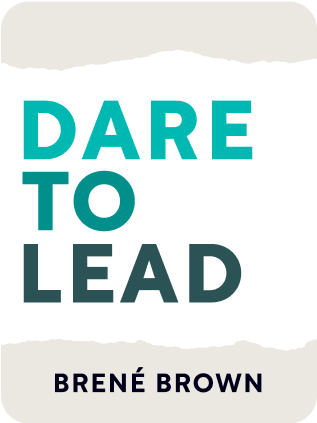

This article is an excerpt from the Shortform book guide to "Dare to Lead" by Brené Brown. Shortform has the world's best summaries and analyses of books you should be reading.
Like this article? Sign up for a free trial here .
Why is empathy in the workplace important? What skills do you need to practice empathy at work?
Empathy in the workplace is important because it helps employees better connect with one another, which leads to greater collaboration and innovative performance. Empathy skills like being mindful, listening to the perspective of others, and being nonjudgmental will create an environment where employees can be more vulnerable around each other.
Read more about the essential skills for practicing empathy in the workplace.
How to Cultivate Empathy in the Workplace
Brave leadership depends on practicing empathy in the workplace to ensure employees respond to the vulnerability of shame effectively: 1) taking the perspective of others, 2) being nonjudgmental, 3) understanding the other person’s feelings, 4) articulating your understanding of those feelings, and 5) being mindful.
Skill #1: Taking the Perspective of Others
The first empathy skill is listening to and honoring the perspective and experience of the person speaking to you. In listening to them, your goal is not to see their perspective of the experience—this would require shedding your own background and experiences and taking on their background and experiences. Of course, this isn’t possible. Rather, your goal is to honor their perspective, which means asking questions and understanding that their perspective is their truth, and may differ from your perspective and your truth.
Empathy in the workplace requires including and valuing diverse perspectives to fully understand who someone is, and seeing how you can successfully connect with their emotions and serve their needs. This step also paves the way for the type of collaboration that spurs innovation and creativity. For example, while working on a new marketing strategy with a team member who has a very different background from you, he might contradict your ideas and say, “Based on my experience, this strategy won’t work with the audience we’re targeting.” While you can’t view the issue from his perspective, you can engage with his vulnerable choice to push back, and ask him why he thinks that, what his experience taught him, and what his approach would be.
Skill #2: Being Nonjudgmental
The second empathy skill is being nonjudgmental when someone opens up about their struggle. This is fairly common sense—judgment doesn’t help people open up and name their fears. It only serves to shame them more and causes them to shut down. However, judgmental moments still happen, usually when we feel most vulnerable to our own shame, and try to soothe it with a sense of superiority.
You can diminish your judgmental moments—and increase people’s willingness to reach out to you—by recognizing and examining them. Finding your shame triggers and working through them helps diminish their power and opens up a more receptive, non-judgmental mindset.
Skill #3 & 4: Understanding and Articulating the Other Person’s Feelings
When responding to the shame of someone’s struggle, it’s important to practice the third and fourth empathy skills in tandem in order to have a meaningful conversation about it. Most people have great difficulty articulating their feelings accurately, which makes it difficult to work through the emotions of an experience. You need to work with them to land on the exact emotion that you should be connecting with.
You can do this by listening to their experience, and then telling them what you are hearing and understanding to check if you’re on the same emotional page. It’s very possible you won’t get the emotion exactly right on your first try—just think of the subtle differences between anger and disappointment, sadness and frustration, shame and guilt. It can be difficult to suggest an emotion, because getting it wrong and having to try again might feel like you’re screwing up empathy. But to the other person, it demonstrates that you’re trying your best to understand and connect.
In a conversation with a team member, you might put this skill into practice after a tough meeting. You could say, “I’m really sorry for how that presentation went. I know it can be embarrassing. Do you want to talk about it?” This demonstrates that you’re open to talking about the struggle, and are trying to find the right emotion (embarrassment) to connect with. Your team member might respond, “I’m more frustrated than embarrassed. Based on Lisa’s feedback last week, I expected it to go well. I could have made the necessary changes if I’d received more honest feedback.” Knowing that you should connect with frustration opens up a more meaningful conversation that demonstrates to your team member that you care about working through her particular struggle together.
Skill #5: Being Mindful
The last skill for practicing empathy in the workplace is being mindful of how you’re engaging with your own emotions so that they don’t prevent you from effectively connecting with the other person’s. Call on them, but be careful not to suppress them or exaggerate them.
If you suppress your emotions, you can’t connect with those emotions in yourself and in the other person, which derails the possibility of meaningful conversation. If you exaggerate your emotions, you’ll become swept up in the negativity of the moment—you can’t support the other person through the emotions if you’re stuck in them yourself.
Even while practicing these five skills, empathy in the workplace is difficult to create—everyone’s empathy needs are different, and there’s always the possibility that you will do or say the wrong thing. It’s important to remember that it’s okay to do or say the wrong thing. If you are trying your best to connect, you’ll notice quickly if you mess up and can easily get back on track. Genuine attempts at empathy are evident—even when they don’t go exactly right, the other person will feel supported by your intent.

———End of Preview———
Like what you just read? Read the rest of the world's best book summary and analysis of Brené Brown's "Dare to Lead" at Shortform .
Here's what you'll find in our full Dare to Lead summary :
- A breakdown of the four courage-building skills that make up brave leadership
- The three reasons why most people avoid vulnerability
- How to recover and move on quickly from failure






